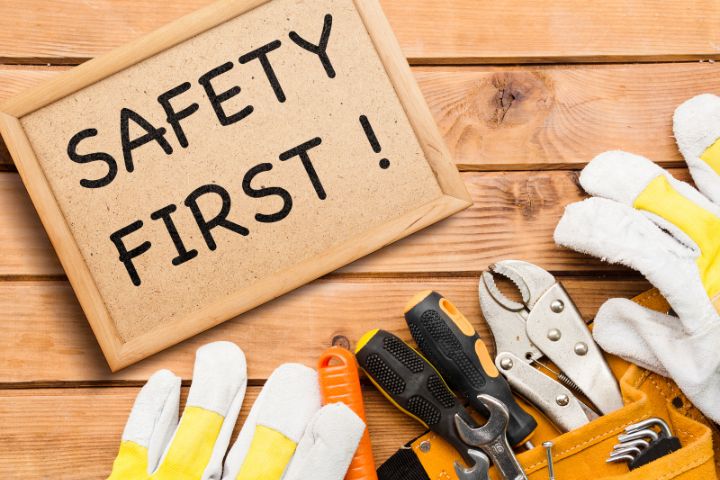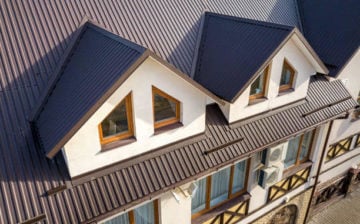Your home is your sanctuary, but accidents and security breaches can occur unexpectedly. By taking a few simple precautions, you can significantly enhance the safety of your loved ones and property. Even experienced homeowners might miss critical aspects of home security, so staying informed and proactive is essential to reducing risks. Implementing top home safety tips not only protects your physical space but also strengthens your peace of mind, ensuring a secure environment for everyone.
Securing Your Home’s Perimeter
Ensuring your home’s boundary is secure is crucial for deterrence and safety. Focus on robust locking systems, proper lighting, and effective use of alarm systems and CCTV.
Effective Locking Systems
Investing in high-quality locks is essential for home security. Deadbolts offer more protection than standard locks. Look for locks that meet the standards of recognized security associations.
Smart locks can offer both convenience and security. These allow you to control access remotely through your smartphone. Some even have biometric features like fingerprint recognition.
Ensure all doors and windows have locks. Even secondary doors and ground-level windows should not be overlooked. Regularly check and maintain these locks to ensure they are working properly.
Lighting and Visibility
Proper lighting is a strong deterrent for potential intruders. Motion-sensor lights are particularly effective as they only activate when movement is detected, saving energy while providing security.
Place lights around all entry points, including the front door, back door, and garage. Pathway lighting helps illuminate walkways, making them safer and more secure.
Trim bushes and trees around the home. Overgrown plants can provide hiding spots for intruders. Consider using solar-powered lights to ensure continuous illumination, even during power outages.
Alarm Systems and CCTV
Alarm systems serve as a crucial layer of security. They can alert you and authorities of any unauthorized entry. Choose an alarm system that offers 24/7 monitoring services.
CCTV cameras provide both a deterrent and a means to collect evidence in case of an incident. Position cameras at all major access points, including entrances and around the perimeter.
Choose cameras equipped with night vision and motion detection. Ensure your CCTV system is connected to a reliable recording device, and consider using cloud storage for easy access and backup.
Maintaining these systems is crucial. Regularly check that all units are operational and keep software updated.
Focus on these essential steps to keep your home’s perimeter secure and give yourself peace of mind.
Fire Prevention and Response
Ensuring your home is protected from fire hazards involves more than just installing smoke detectors. Proper maintenance, having the right safety equipment, and knowing how to respond to an emergency are key steps.
Smoke Detectors and Fire Alarms
Place smoke detectors all over your home, ensuring they are installed both inside and outside of bedrooms. Opt for interconnected alarms, as they all sound if one is triggered. Test your smoke detectors monthly and replace the batteries at least annually. Consider smart smoke detectors that send alerts to your phone if you’re not home.
In addition, fire alarms should be loud enough to wake you up, even if you sleep with the doors closed. Familiarize yourself with the different sounds or signals for fire and carbon monoxide alarms. Early detection is crucial for a timely evacuation, so never disable your alarms, even temporarily.
Fire Extinguishers and Escape Plans
Every home should have at least one fire extinguisher, and ideally, one on each level. Learn how to use a fire extinguisher by remembering the PASS method: Pull the pin, Aim low, Squeeze the lever, and Sweep the nozzle. Ensure that all household members are familiar with these steps.
Create and rehearse an emergency escape plan with your family. Identify two exits from every room and establish a meeting point outside the home. Teach children how to escape safely and remind everyone to stay low to avoid smoke inhalation. Practicing twice a year will help keep everyone prepared.
Regular Maintenance and Safety Checks
Regularly inspect your home’s electrical systems, as faulty wiring is a common fire risk. Hiring professionals for safety inspections can prevent electrical fires. Make sure to find a dependable electrician in Gulfport, MS, who can offer emergency services when needed.
Clean your dryer vents, chimney, and stove hoods regularly to reduce the risk of fire. Store flammable materials in safe, designated areas away from heat sources. Routinely check that all extinguishers are charged and in good condition, and replace them as needed. Regular safety checks can dramatically lower the risk of home fires.
Child and Elder Safety Measures
Ensuring both child and elder safety at home requires proactive steps tailored to their unique needs. Parents need to childproof their homes, while caregivers should focus on making the living environment more accessible and safer for seniors.
Childproofing Your Home
To keep your children safe, start with the basics. Cover electrical outlets with plastic safety covers. Secure heavy furniture, like bookshelves and TVs, to the wall to prevent tip-overs. Put gates at both the top and bottom of stairs.
In the kitchen, store knives, cleaning supplies, and small appliances out of reach or in locked cabinets. Use stove knob covers to prevent young children from accidentally turning on the burners.
Place safety latches on cabinets and drawers to keep curious kids from accessing potentially dangerous items. Always supervise bath time and invest in anti-slip mats for your bathtub and bathroom floor to prevent falls.
Senior-Friendly Home Modifications
For seniors, reducing fall risk is crucial. Place grab bars in the bathroom, particularly near the toilet and inside the shower. Consider a walk-in shower with a seat for added safety. Ensure there is adequate lighting throughout the home, particularly in hallways and staircases.
Remove trip hazards like loose rugs and clutter. Non-slip flooring can be a significant improvement for seniors with mobility issues.
If stairs are an issue, consider installing a stair lift or ensuring living spaces can be accessed on one level. Motion sensor lights are beneficial for nighttime navigation, and a medical alert system can provide peace of mind in case of emergencies.
In conclusion
Keeping your home safe requires a proactive approach that addresses various aspects of security, fire prevention, and the safety of children and seniors. By securing your home’s perimeter, maintaining effective fire prevention measures, and implementing targeted safety modifications, you can create a safer living environment for everyone in your household. Regular maintenance, clear emergency plans, and the use of modern safety technology all contribute to peace of mind, ensuring that your home remains a secure and comfortable sanctuary. Prioritizing these safety tips is an investment in the well-being of your loved ones and your property.
We hope you found this blog post on Essential Home Safety Tips For Every Homeowner, useful. Be sure to check out our post on Home Security Tips for Renters for more great tips!
Have Experience in the Moving Industry? Want an Additional Income Stream? Work With All Around Moving!
Partner with us and we’ll help you make money by establishing your own moving relocation consultant business. Click here to learn more.






